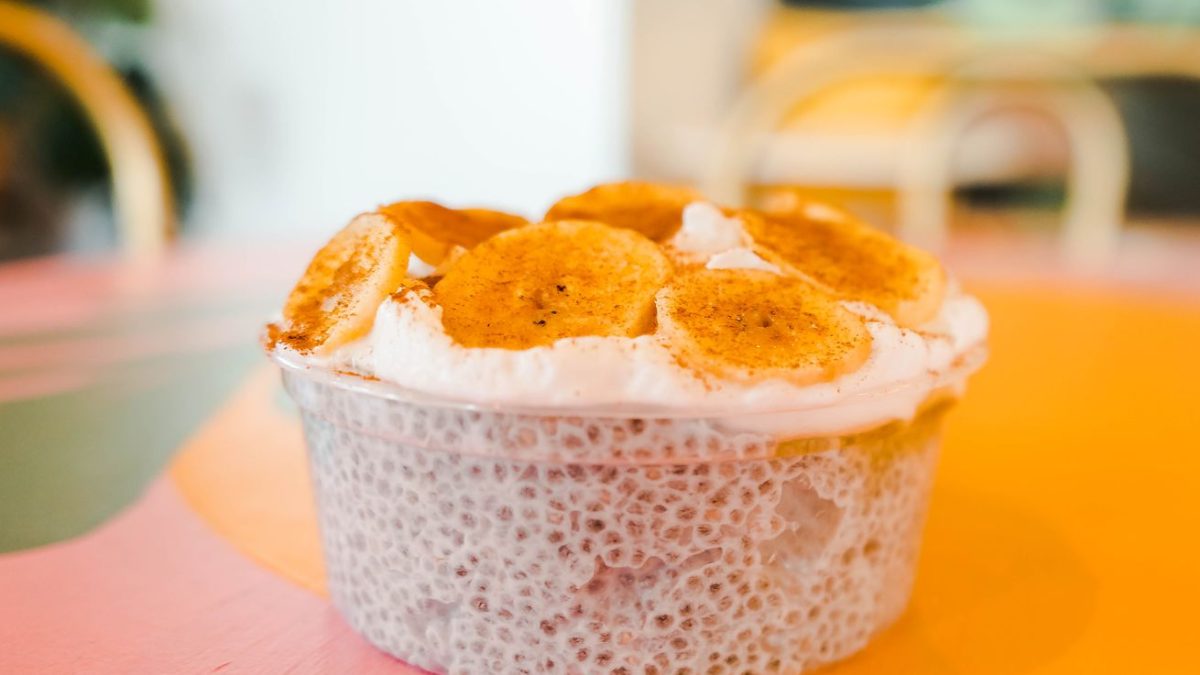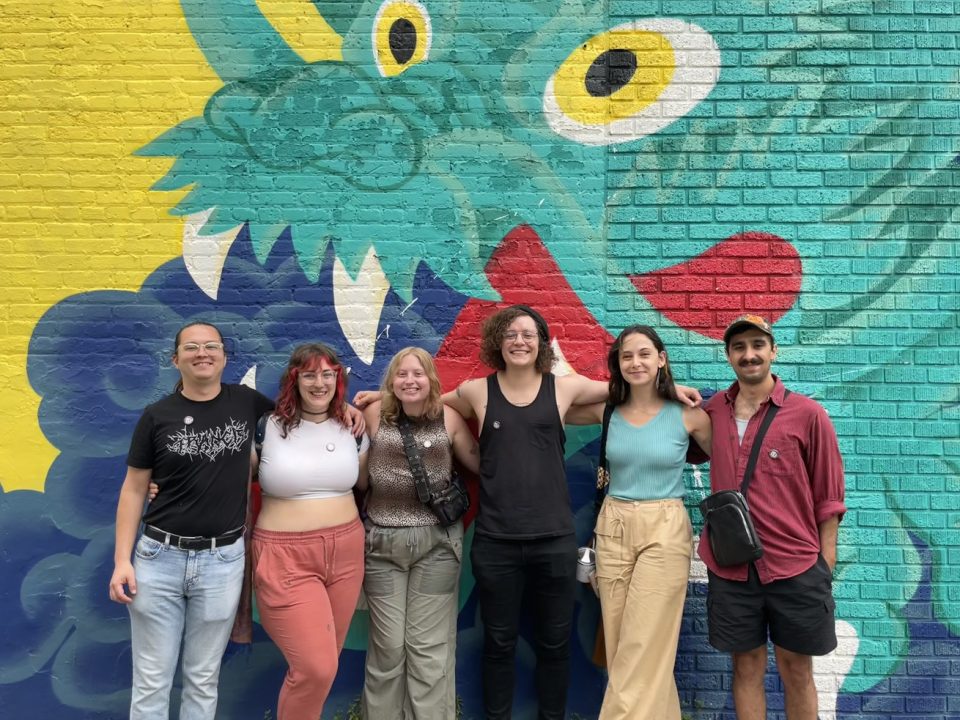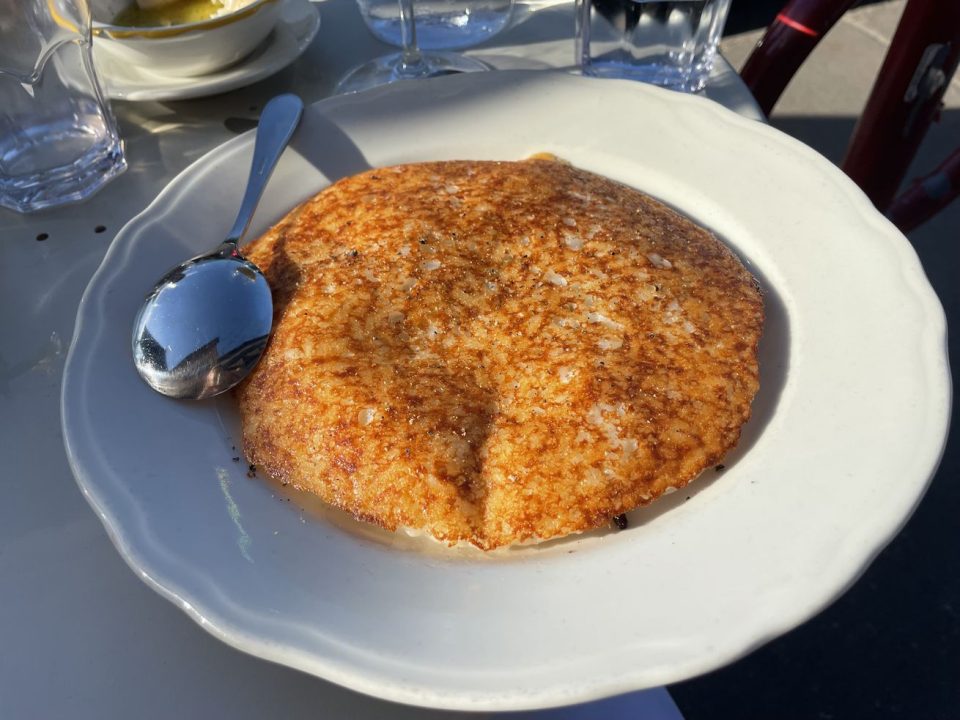
Cocoa prices spiked to an all-time high right before Valentine's Day
February 12, 2024
What is Temu, and should you let your parents order from it?
February 14, 2024At Sierra Carter’s Camden cafe, African diasporic flavors and herbalism converge on a menu designed for community connection and healing
North Minneapolis cafe Heal Mpls, owned by music executive Sierra Carter, sits in the former Camden Park State Bank, a red-brick building at the corner of 42nd Street and Lyndale Avenue. The restaurant is full of natural light, drenched in the green hues of a tropical rainforest mural; plants drip from the ceiling. Shelves of books on self-help and healing line the walls, and an in-house apothecary features over 130 herbs for purchase. There are other items from local Black makers for sale throughout the space, too. Diners line up at the counter for dishes like tinga cabbage tacos, banana chia seed pudding, and fresh-pressed juices.
The scene feels worlds away from where Carter was a few years ago. Back in 2017, she was vice president of the local hip-hop label Rhymesayers Entertainment, dedicating a lot of time to its operations. The role’s long, grueling hours led her to realize a need for deep healing in her life, so, in 2018, she took a step back from daily operations to open her wellness center the Zen Bin, which provides donation-based acupuncture, yoga, meditation, cardio classes, and trauma healing circles, helping to remove barriers to holistic care in North Minneapolis. (Carter is still VP of Rhymesayers, involved mostly in special projects.)
Later, Carter studied with a Rastafarian healer and raw chef, training herself to be an herbalist as she realized the potential of food as a tool for healing. In 2021, she took things to the next level and opened Heal, where she’s evolved and expanded her herbalism training and love for plant-based food. The name is an acronym for “herbs, eats, all love,” and the menu offers an amalgamation of African diasporic flavors, all centralized around connection and healing.

Justine Jones
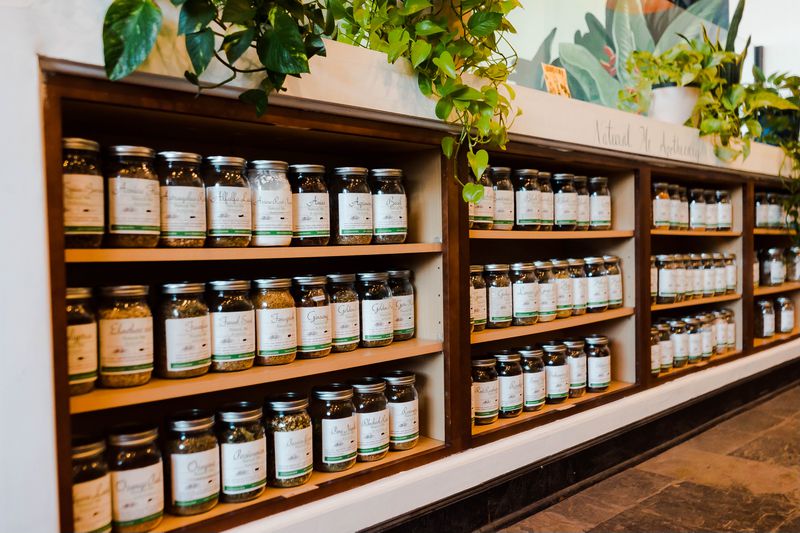
Heal Mpls
Carter’s family’s Southern roots influence the flavors and dishes on the menu. “I got inspired by cooking from my dad,” Carter says. “He’s from the South, and a lot of my roots are from Mississippi. So we have a Mississippi Bae Bowl with fried oyster mushrooms that’s super popular.” Menu staples include hearty jerk mushroom tacos, “Northside nachos” loaded with beans and kachumbari, an African tomato and onion salad, and rotating vegetable-packed stir-fry. “We try to use the flavors of the full African diaspora, so Creole, Jamaican, southern Haitian … we just play on our ancestors,” says Carter. For breakfast options, there’s always pancakes, scrambles, and hashes on the menu, too. And although Carter doesn’t label Heal as a vegan restaurant, all of the dishes are made without animal products, and there are no fake meats or cheeses, soy, or dairy products on the menu.
One standout dish is the Rich Boy: Crispy fried oyster mushrooms piled high onto a roll and crowned with cucumber, tomato, and banana peppers. A tangy hemp sauce balances out the slippery, crunchy mushrooms, and herby French fries are served on the side — so many that it’s hard to close the lid on the container. Heal doesn’t skimp on the portions.
The menu is seasonal but not only dictated by what ingredients are in season as much as what might soothe the body on a humid summer day, or cold January night. Warming, spiced lattes can be found in the winter months, plus soups for brothy hydration. And though Heal serves fresh-pressed juices year-round, cooling flavors like melon and cucumber appear in the warmer months. Heal’s sun-hued golden milk latte mixes coconut milk, turmeric, black pepper, ginger, and “secret ingredients” for a drink that’s rich and comforting, like a warm hug on a cold day. This is an example of where Carter flexes her herbalism: The combo of black pepper and turmeric has been used for years in ayurvedic medicine to relieve inflammation.
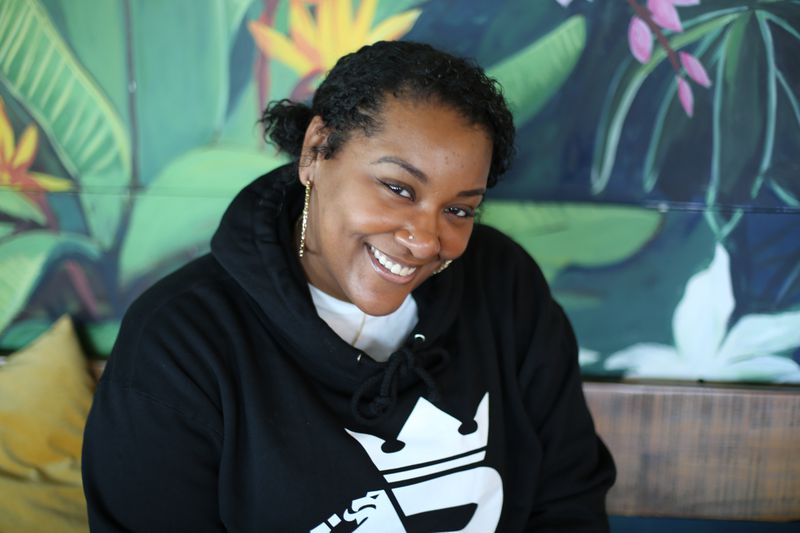
Justine Jones
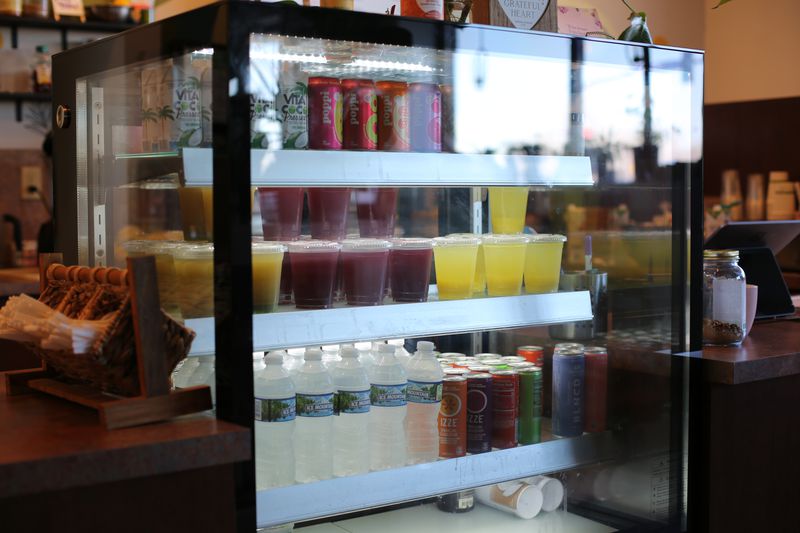
Justine Jones
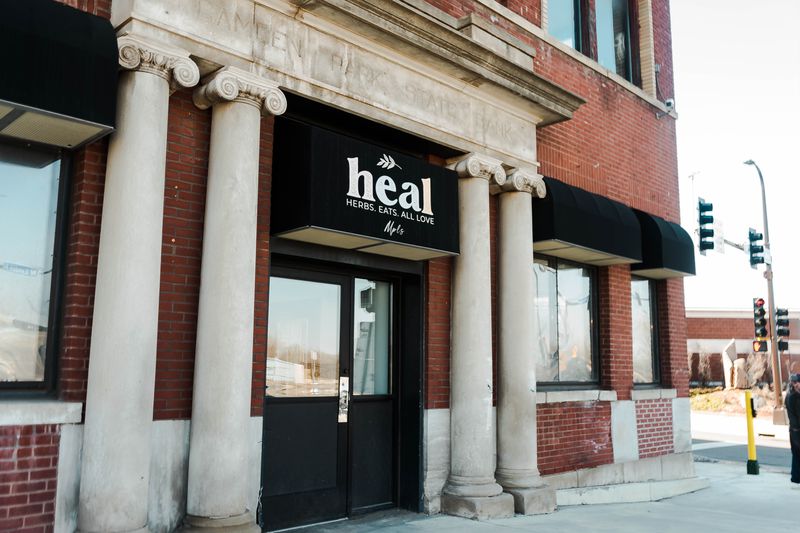
Heal Mpls
Carter says her faith firmly guides her, and she believes in using her talents to give back to the community. She runs an incubator program in the restaurant, highlighting products from various Black entrepreneurs. To further support the community, Heal also has frequent programming like financial literacy and therapy groups, cooking classes, Therapy Thursdays, hosting Black Santa during the holidays, and interfaith prayer with free tacos on Tuesdays. Heal offers a weekly meal-prep membership, too. “I think that something that I’m super passionate about is pursuing purpose over paper — so we’re not pursuing the money, we’re pursuing the purpose of it,” says Carter. “I’m sure a lot of other restaurants are fast or whatever, but I think that what we’re doing is so purposeful, and I think that’s the wealth that I’m seeking. That’s the success that I’m seeking.”
Anissa Keyes, a fellow North Minneapolis healer, owns the building Heal resides in, where she aims to create a hub for Black-owned businesses. “I think being the first major tenant after Anissa bought the building, it’s been an honor and a privilege to kind of see the transformation of the space,” Carter says. Keyes echoes Carter’s sentiments about her mission. “It’s imperative that Black and Brown bodies have safe spaces to take refuge in,” she says. “HEAL is the perfect place to feel connected to other like-minded people, be grounded in the community and to break bread with one another. This all leads to our collective healing.”
This is slow food, and things take a little extra care and time — but diners are invited to scan a book, peruse the herbs, or pull an oracle card as they wait. Heal isn’t a place to rush away from; it’s a refuge from the bustle of daily life. Carter understands the importance of a space like hers for the Northside, a neighborhood with a history of disinvestment and municipal neglect. “I think the people that live in this neighborhood get emotional and get so grateful,” Carter says. “They walk into a place that feels like it was made for them, and it wasn’t just thrown-together. They feel like, ‘Wow, we actually have something nicer in our area.’” Healing takes many forms, and with her cozy space for rest and nourishment, Carter aims to help people access it through food, gathering, and opportunity.
“One of the Kwanzaa principles is cooperative economics, so I’m all for creating a space for people to shine,” she says.
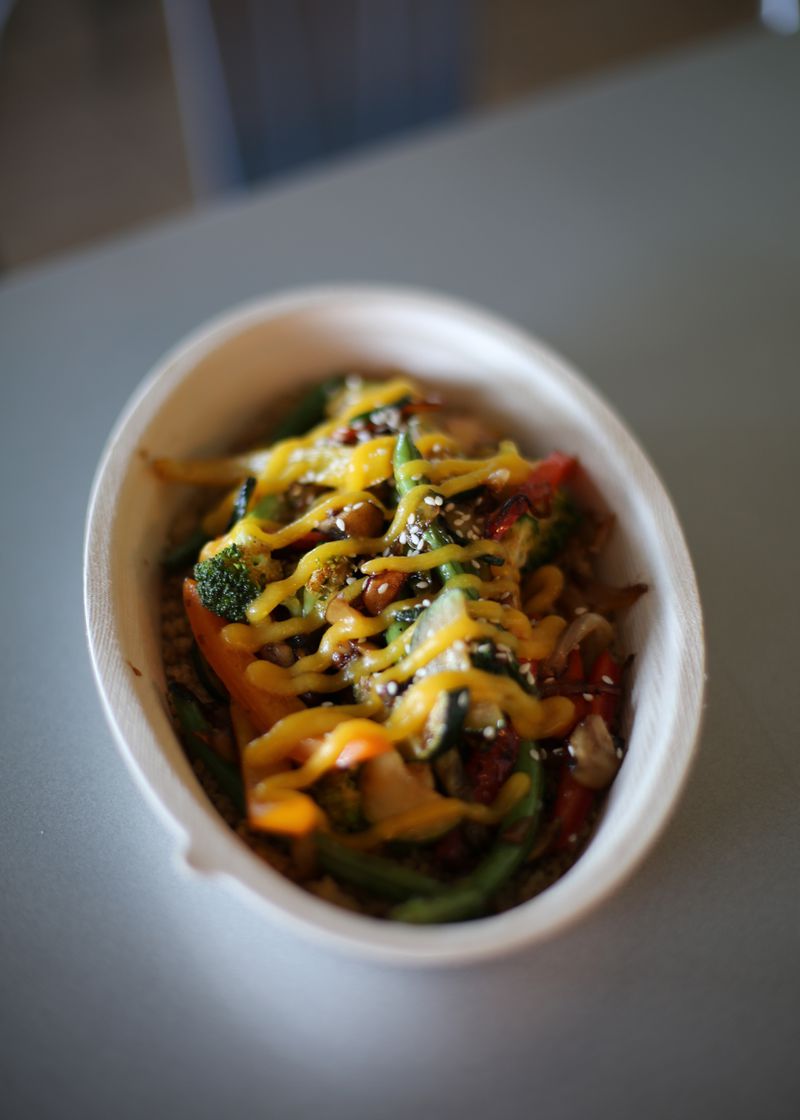
Justine Jones
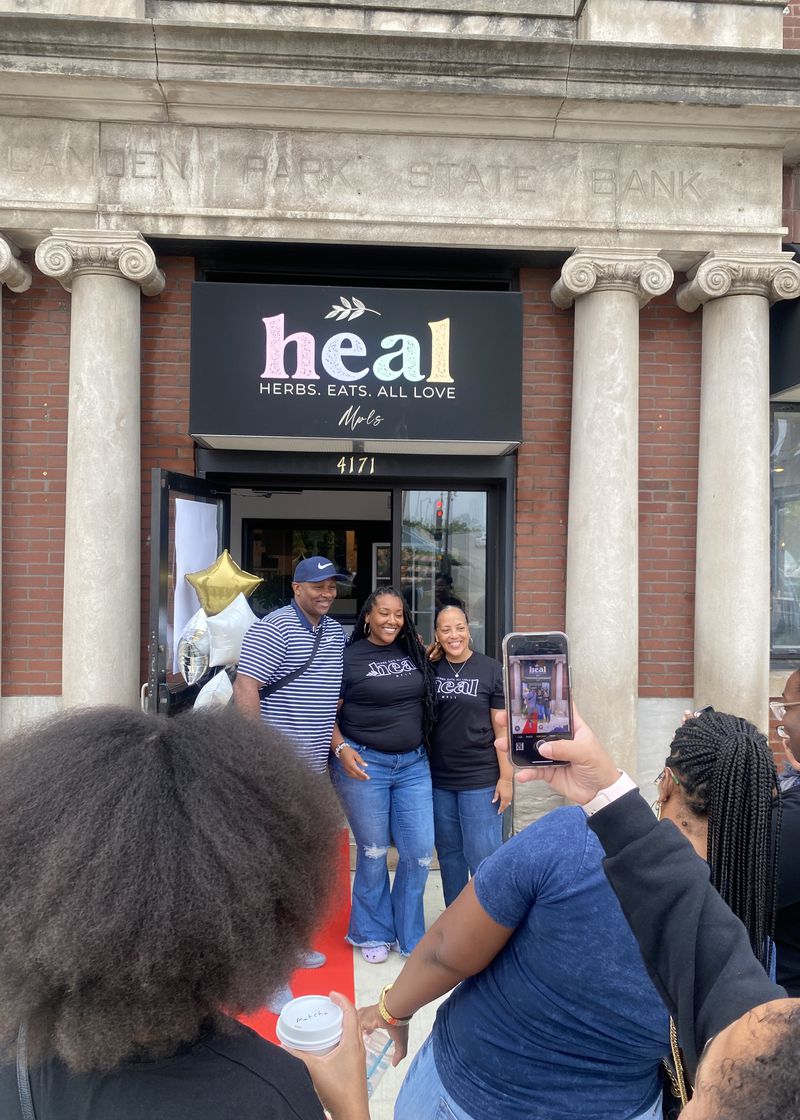
Heal Mpls



